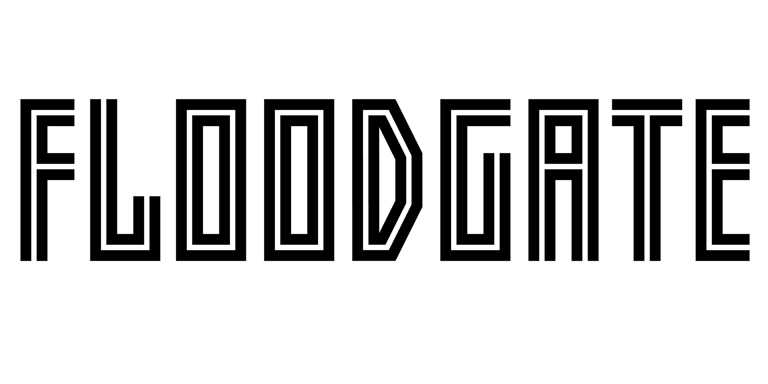Why We Do
What sent us down the crazy road of publishing.
Garrie Fletcher
7/5/20234 min read
In 1999 a book was published called Hard Shoulder, with a subtitle of ‘Voices from the City’. It’s a collection of 16 stories from and about Birmingham. It was edited by Jackie Gay and Julia Bell, and published by a fledgeling publisher called Tindal Street Press (they were founded in 1998, emerging from the creative writing group).
Tindal Street went on to publish some incredibly well received books, netting amongst others three Booker Prize nominations. Then, in 2012, they were sold to a London publisher and it all stopped.
Post-Tindal Street Publishing, the writer’s group got together to publish a collection of fiction about Birmingham. Called The Sea In Birmingham, this collection had an editorial suggesting that the new library of Birmingham might become a focus of ‘literary solidarity’, but that hasn’t quite happened. That was in 2013.
Later, it would take publishers from more northerly climes to make books about Birmingham.
Comma Press out of Manchester published The Book of Birmingham in 2018, part of their Reading the City series. Small press Dostoyevsky Wannabe (also from Manchester) put out their Cities: Birmingham collection in 2020, right on the cusp of the Covid pandemic.
I suppose I’m trying to paint a picture of how sporadic and unevenly distributed literary output from or about Birmingham can be. That’s not to say it’s completely barren – we do very well with poetry presses in these parts, and they seem to be going from strength to strength (Emma Press is a prime example, one that also occasionally publishes prose).
We are about to add to it. We deal in prose – it’s our natural home and want to shine a light on the prose writers of the city.
It seems that London has finally realised there are other parts of the UK - Hachette publishers are opening offices in Edinburgh, Newcastle, Manchester, Sheffield and Bristol. Channel 4 has announced regional offices in Leeds, Glasgow and Bristol.
Sometimes London and the North notice that the Midlands exists. Geography isn't on our side here, I feel - do we appear to be “basically London” to people in the North? Are we “not northern enough” to those in London?
I don’t know, but there’s a thread that runs through the introductions to all these collections - that of Birmingham’s identity, or rather, the recognition of that identity outside of the Midlands. Does this mean Birmingham has an identity problem? A PR problem? Or could it be that itself -- the stoic, non-flashy, head-down-tail-up attitude of the city-- is the very strength of the Midlands’ character and something worth writing about?
(It’s changing … slowly. The BBC have just announced their relocation to the refurbished Typhoo Tea building in Digbeth, and local TV supremo Steven Knight is planning a multi-million-pound studio there too.)
We think more people should understand the city, and even though shouting about the achievements (both historical and contemporary) and diversity of this place isn’t so much in the city’s nature, it doesn’t hurt to fly the flag once in a while. A million people surely have a lot to say.
Someone just has to get on and do it - Tindal street the publisher has been gone for a decade. There’s room here, and we’d like to claim a little slice of it for Digbeth Stories from Floodgate Press.
There are great opportunities for independent publishing at the moment. Those working in what are often described as ‘the regions’ can be successful in escaping the great gravity of the capital, and well-placed when searching for new or niche talent to nurture. The internet is a great enabler for this; existing publishing topographies will one day be redundant.
Output from such small ventures is fractional, but those fractions add up. In the UK’s nearly 6 Billion Pound publishing sector (up nearly 1 billion a year for the last few years), 51% of sales are through the Big Five. That leaves a lot of space on the shelves for other concerns.
And art has to be about more than just the numbers.
Independent presses give the author and the work priority. Every indie press is a working example of how interests become ideas, become ventures, and go on to become books. Often it’s a labour of love, publishing work that is in turn a labour of love for the writer. The expectation of financial reward is not the prime motivator. They embrace alternate methods of generating revenue like crowdfunding, such as Unbound’s Common People anthology. Sometimes it’s out of their own pocket, as in our case. Frequently they rely on government grants from the Arts Council (so buy a lottery ticket, people). Some are quietly independent, some are fiercely so, but it's always with an eye on quality and an identity of their own. For those that have made the internet their storefront, that distinct identity is necessary.
Indies exist for the under-represented. They exist because they have a passion to make those things that might not originate from stifling, purely market-driven ecosystems. They put out more than just content. They exist from and for minorities and other overlooked creators. They offer alternate perspectives. They protest. They explore the experimental. They exist where genres intersect in unexpected ways, and for those writers and readers who don’t affiliate with any popular mode - they exist because they have to. They’re grass-roots, they’re agile, and they’re essential.
We want to put out the best prose writing we can find, from writers who we know are there just waiting for the chance to get out there. We want to make something of quality, something particular to the place and the time, yet appeals to as people as possible at home and beyond.
